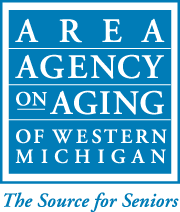Podcast
The podcasts of the Caregiver Resource Network(CRN) were created by CRN members with the hope that community members might share some wisdom from experts in the area of aging.
We hope that you might listen and enjoy some of the podcasts while you travel or relax.
Episodes
Veterans Benefits Issues
Episode: 35
Duration: 28:39
What Veteran services are available and how are they organized (divided by governmental level - federal, state and county)? What is the VA Caregiver Support Program? When did the VA Caregiver Support Program begin? What resources (websites, 800 numbers) are available to caregivers through the VA? What caregiver benefits are available to any Veteran who requires a caregiver? What in-home and community services are available to Veterans? What are the requirements for these benefits and services? Are there any unique caregiver benefits for Veterans who have been injured in the wars in Afghanistan and Iraq? Are there education and training opportunities for caregivers of Veterans? Who are the Caregiver Support Coordinators connected with the Battle Creek VA Health System? What is the bottom line with regard to Veteran services? Hospice Myths and Realities - many myths and misunderstandings about hospice care are explored.
Moving Transition
Episode: 34
Duration: 28:18
How do I approach the conversation about making a moving transition? When is the right time to begin the move process for my elderly parents? Where do we start? What are the steps to downsizing? How long does the process of selling take? My parents keep making excuses for not moving. They say they are living in their home for free. What can I say to help them? What services are available to assist with the entire moving process? When my mother moves from the family home, should we sell or rent the house? Is it better to sell the family home before or after mom moves to her new residence? What about getting a reverse mortgage and bringing in a universal design specialist? Why would someone hire a Senior Real Estate Specialist rather than any Realtor?
Huntington's Disease
Episode: 33
Duration: 28:34
Can you give us in layman's terms a description of Huntington's Disease and how it affects those who have the disease? Can you inform us about the inheritance of Huntington's Disease and the implications for those at risk? Can you share with us the genetic testing protocol for those who are living at risk for Huntington Disease? What are the main concerns of families who are caring for a relative with Huntington Disease? What are some of the unique challenges they face? What types of national resources are available to families caring for a relative with Huntington Disease? Can you tell us about the Huntington Disease Living Positive support group; what the focus is for these meetings; and who is invited to participate? Are these groups available nationally? Where can someone find information on the group nearest to them? Where can someone find information about genetic testing for Huntington Disease?
Financial Security
Episode: 32
Duration: 28:28
We'll talk about the importance of Financial Security primarily for Seniors, but most of the financial planning principles we'll discuss today can be just as applicable and beneficial to Caregivers as well. Really, this discussion can apply to anyone at any age who wants to achieve and maintain financial security.
How to Pay for Long-Term-Care
Episode: 36
Duration: 28:28
What is long-term-care and how prevalent is it in the lives of older people? What are the costs of different types of care? What are ways for paying for long-term care if they cannot long live in their homes alone? What is the VA Aid & Attendance program, who can get it and how much is the benefit? How does long term care insurance work? Medicare's coverage of long-term-care is very limited...what does it pay for and under what circumstances? In what ways does Medicaid pay for long-term-care? What is the Medicaid Waiver and how does it help to pay for long-term-care?
Depression and Anxiety
Episode: 31
Duration: 28:35
Depression and anxiety in the elderly is often thought to be a normal part of aging. Why is this thought process false? Why is it important that an older adult's depression and anxiety be identified and treated ? What should a caregiver look for that may indicate their loved one has depression or anxiety? What should I do if I think my loved one is experiencing some level of depression or anxiety? In observing a loved one, what actions or behavior might signal a serious depression or anxiety that requires immediate seeking of help on the part of the caregiver? (risk for suicide) What if my loved one denies that he/she may be experiencing depression or anxiety? Or refuses to speak to a professional, including his/her primary medical care provider? What type of treatment is available for depression and anxiety? What can I do help my loved one? What do I look for in myself as a caregiver that may mean I have some depression or anxiety? What can I do to help myself if I think that depression or anxiety may be present in me?
Healthy Living Strategies
Episode: 30
Duration: 28:33
What are the benefits of Healthy Living strategies? What are some of the Healthy Living strategies? Are some of these strategies better than others? Are the Healthy Living strategies one size fits all? Or, do they need to be chosen to fit each person? What happens when a person reaches their wellness goals? Are there things a caregiver can enjoy together with the person they are caring for? Are there tools or a website where someone can get more information? If a caregiver is exhausted during the day from caregiving but wants to feel better and achieve wellness, how can they find the motivation and energy? Do experts or national organizations recommend any of the Healthy Living strategy workouts you mentioned? What do I need to do to get started?
Hoarding and How to Organize Your Life
Episode: 29
Duration: 28:32
What is chronic disorganization? What is hoarding behavior? Why do people hoard? How prevalent is the problem of hoarding with the general population and with older adults? How can caregivers deal with hoarding tendencies? How can caregivers benefit from better organizing their own lives? Do's/Don'ts of working with someone with hoarding tendencies What are the resources available to deal with the hoarding issues? What is a Professional Organizer? How do I find a qualified organizer and/or therapist to work with my family member? Other issues: Long distance caregiving and the need to hire in professionals to provide assistance and care in areas such as paperwork organization, clutter control, downsizing/moving
The Use of New Technology in Caregiving
Episode: 28
Duration: 28:36
What role does technology currently play in caregiving, and how is this role evolving? What are the benefits of medical alarms? Do medical alarms work with all phone systems? What should I know about purchasing a help button? What happens if I cannot answer the machine? Does Medicare or Medicaid pay for help button systems? What if an elder is resistant to having a help button? Why are they so stubborn? Can I use a help button if I want to leave my home and go to the grocery store? What are the benefits of medication dispensers? How has the internet impacted medical alarms? Technology only works if people are able to use it properly...how user friendly is the current technology? How does a professional, such as yourself, help people to overcome their anxieties related to use of technology? What are the newest developments in medical alarm technology? How and where can people access information on availability of these types of assistive technologies within their community nationally?
Death, Dying and Bereavement
Episode: 27
Duration: 28:42
Talk about societal taboos about death and the fact that we are a death-denying society What is the all American way to die...and how does this contrast to the way that most people die in our Country? Discuss problems/issues with "dying" within the traditional medical model and contrast them with the hospice philosophy/model What is palliative care and how does this relate to hospice care...is it exclusively used within hospice care? How might different staging models be used to assist in helping those who are dying through the process? Can these same models help us to understand and assist those who are grieving? Is the average American taught about death, dying, and bereavement? Are all doctors, nurses, clergy and other key individuals given proper training on how to deal with these issues? What is anticipatory grief...How can this be beneficial? Discuss the need for humans to grieve all forms of loss (not only the death of someone close to them) What resources exist to help those who are dying as well as those who are grieving?

